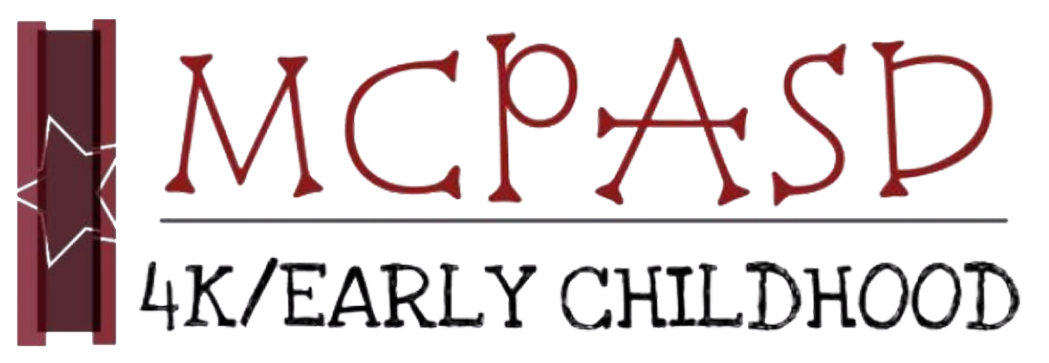The Early Learning Center is the home of three distinct programs: Early Childhood, 4K, and Phonology. Each of the programs has its own role to play in the development of our students. All of the programs support a child's natural curiosity and foster a love of learning.
Early Childhood Program:
The Early Childhood Program is designed for children 3-4 years old, who have been found to have a disability and are eligible to receive special education services.
Each student in the EC Program has an Individual Education Plan (IEP) that is tailored to the child’s unique needs.
Through thoughtfully designed play opportunities and individualized activities, our youngest students learn:
Invaluable social and communication skills
Critical emotional and self-regulation skills
Greater independence in daily living/ self-care routines
Learn more about the initial screening process here.
4K Program:
MCPASD 4K is a developmentally appropriate play-based program designed to nurture the social, emotional and academic skills of four-year-old children. It does not take the place of kindergarten.
MCPASD 4K is implemented using a community-collaborative model that builds on existing resources within our community. Partnerships between our elementary schools, childcare centers, and preschools are used to provide high quality and inclusive early childhood education for four-year-olds.
Learn more about the 4K curriculum here.
Phonology
The Phonology Program is an intensive speech therapy program for students aged 3-5 who have been evaluated and were identified as having a phonological speech sound disability.
This program uses the Cycles Approach to address and remediate phonological processing errors. The Cycles Approach is chosen for a specific group of children who are age-appropriate in all other areas of development, but are experiencing great difficulties learning their speech sound system.
The children who are eligible have a good understanding of language and can form sentences. However, their speech may be unintelligible, especially to those outside their immediate family. An example of a phonological speech error would be dropping off sounds at the end of words (i.e., ‘bee’ for ‘beep’) or deleting a consonant in a blend (i.e., ‘top’ for ‘stop’).
Learn more about the phonology program here.

